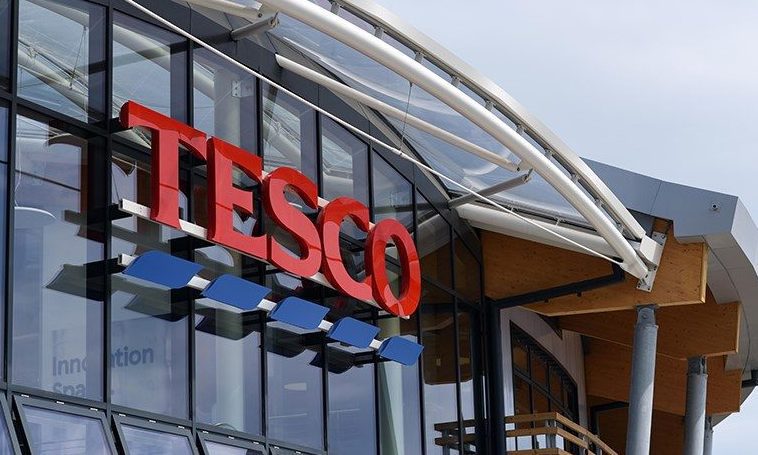Tesco’s free food trial: a game-changer in tackling food waste?
As consumers increasingly prioritise sustainability, supermarkets are under pressure to rethink their approach to food waste. Retail Sector explores Tesco’s bold new trial to give away close-to-expiry food for free, and its potential to reshape retail practices, reduce waste, and influence consumer behaviour

Tesco’s new initiative to give away close-to-expiry food for free is making waves in the UK’s retail and sustainability circles. With an increasing focus on food waste reduction, this trial could signal a significant shift in how supermarkets might handle surplus products.
But could this move from the UK’s largest retailer transform the way we approach food waste, or is it merely a marketing move?
The initiative
In a bid to combat food waste, Tesco has begun offering unsold items with yellow discount stickers for free in select Express stores, but only after 9:30 PM. This trial seeks to ensure that food nearing its expiration date doesn’t end up in the waste bin. Initially, products are being donated to charities and offered to staff; then, any leftovers are given to customers for free.
This initiative, part of Tesco’s broader sustainability efforts, complements its long-standing commitment to reducing food waste. Tesco has pledged to halve its food waste by 2030, as part of the UK’s goal to meet the UN Sustainable Development Goals. The free food trial adds another layer to its already-established strategy of deep discounts on near-expiry items, offering a chance for products to go to those who need them most, rather than being discarded.
The grocer’s move reflects a growing trend in the retail industry to explore innovative ways to manage food waste. Other supermarkets, including Sainsbury’s and Asda, have faced mounting pressure to address food surplus and waste, as consumer awareness around sustainability and food waste grows. However, Tesco is the first to trial this free giveaway model, which could potentially reshape supermarket strategies.
WRAP’s perspective
According to WRAP (Waste and Resources Action Programme), the UK’s leading charity dedicated to tackling food waste, Tesco’s initiative aligns with broader efforts to reduce food waste across the supply chain and within households.
A WRAP’s spokesperson says: “Food waste is a huge global issue, and in every country, it’s the home where most food waste arises. Through the UK Food and Drink Pact, all retailers are working to prevent food waste in their supply chains and minimise instances of food waste in the home. All have established relationships with charities that redistribute good food for their own charitable use. This is an interesting small trial that Tesco is running to ensure that food with a short shelf life has an additional opportunity to avoid being wasted.”
WRAP’s view suggests that while Tesco’s trial is a promising development, it remains a “small” effort in the grand scheme of reducing food waste. The organisation’s UK Food and Drink Pact – an initiative designed to bring together the food and drink industry to reduce food waste – sets ambitious goals for retailers. Many major chains, including Tesco, have committed to redistributing surplus food to charity, minimizing waste in supply chains, and raising awareness about food waste at the consumer level.
Tesco’s move may be seen as an extension of these commitments, but it is also a test. Will customers embrace the notion of free food in the evening, or will they find it too late to impact purchasing habits? Can this initiative scale, and will other retailers adopt similar models? These are questions that the trial will hopefully answer.
What could this lead to?
If the trial proves successful, it could pave the way for a wider adoption of similar programmes across Tesco’s network, and potentially within the wider grocery retail sector. Retailers have increasingly come under fire for contributing to food waste, particularly given that large amounts of perfectly good food are discarded simply because they are close to their sell-by dates. With supermarket chains like Tesco now actively pursuing new ways to reduce waste, a ripple effect could occur, encouraging other retailers to launch similar programmes.
In addition to its charitable aspect, this initiative could also help shift consumer attitudes toward food waste. Research from WRAP and other organisations shows that many consumers still see close-to-expiry food as unappealing, despite it being perfectly safe and edible. By giving away near-expiry food for free, Tesco could help normalise these products and encourage more responsible consumption.
However, it’s important to note that there are concerns. One possible downside of such initiatives is the risk of overconsumption or hoarding. Could customers begin to wait for the free food, knowing they can access items at no cost, potentially leading to higher levels of waste at the household level?
Additionally, there’s the question of fairness. Will there be sufficient safeguards in place to ensure that the free food goes to those who need it most, and not just those who are opportunistic?
Tesco’s initiative also opens the door for potential policy discussions about food waste and retail sustainability. As the UK moves toward its 2030 food waste reduction targets, could initiatives like these influence future legislation around food surplus? While the government has encouraged the redistribution of surplus food, could there be further regulation to mandate supermarkets to engage in such practices on a larger scale? Tesco’s trial might provide the data needed to argue that more widespread adoption could be both economically feasible and socially beneficial.
For now, Tesco’s free food giveaway is undoubtedly a positive step forward in addressing food waste, but its long-term impact remains to be seen. WRAP’s cautious yet supportive take on the initiative suggests that it could contribute to reducing waste, but the true test will be in its scalability and effectiveness in changing consumer behaviour.
The trial is also part of a larger conversation about how retailers, charities, and governments can work together to tackle food waste in the supply chain and in households. If successful, Tesco’s model could inspire other retailers to rethink how they handle surplus food. As the UK works toward halving food waste by 2030, initiatives like these will continue to play a crucial role in shaping the future of food sustainability in retail.
Tesco’s trial may be just the beginning, but it holds huge potential to lead the way for other retailers and change the conversation on food waste in the retail sector.



